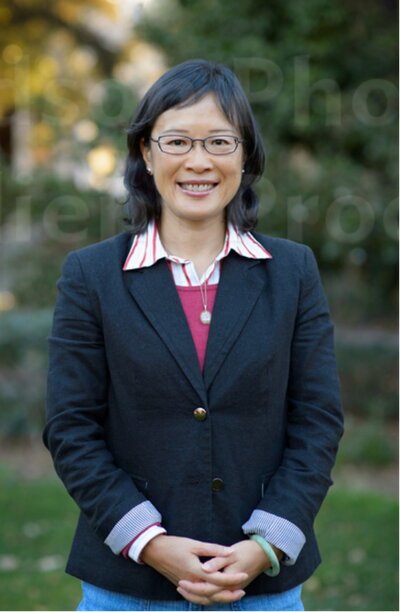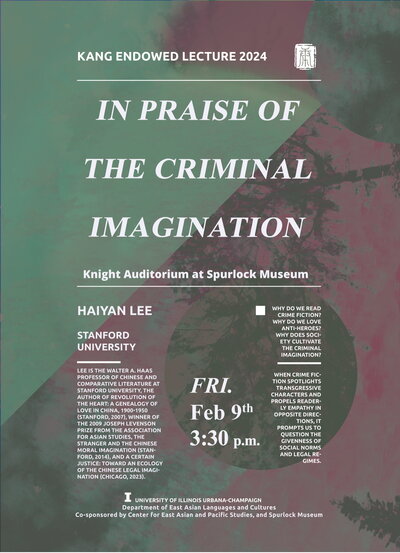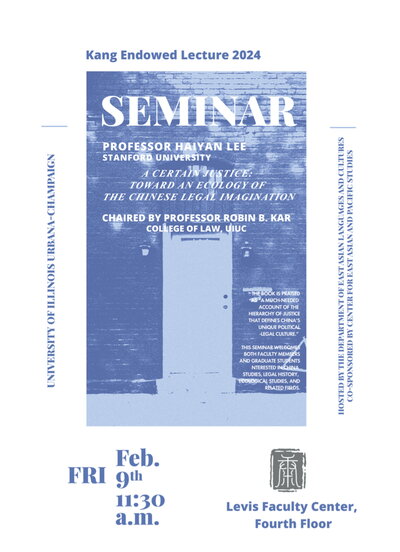Haiyan Lee is the Walter A. Haas Professor of Chinese and comparative literature at Stanford University. She is the author of Revolution of the Heart: A Genealogy of Love in China, 1900-1950 (Stanford, 2007), winner of the 2009 Joseph Levenson Prize from the Association for Asian Studies, The Stranger and the Chinese Moral Imagination (Stanford, 2014), and A Certain Justice: Toward an Ecology of the Chinese Legal Imagination (Chicago, 2023). Her research and teaching interests include modern Chinese literature and popular culture; philosophy and literature; law and literature; cognitive science and affect studies; cultural studies of gender, sexuality, race, and religion; human-animal relations and environmental humanities.

Professor Lee gave the 2024 Kang Lecture on Feb 9 in the Knight Auditorium at Spurlock Museum

In Praise of the Criminal Imagination
Current events, particularly those connected with the BLM movement, have pressed home the disconcerting truth that the law is not synonymous with justice, and that its apparatus is liable to entrench as much as curb systemic injustices. Nowhere is the discrepancy between law and justice more starkly on display than in Victor Hugo’s Les Misérables. A contemporary Chinese novel, Sunspots by Xu Yigua, transposes the fault line of the French novel to a society newly committed to the rule of law. Here three fugitives seek private redemption by pouring their hearts and souls into the raising of an orphan girl while quietly holding down menial jobs; a determined cop gets on their trail; when they are eventually ensnared by the net of law, the reader must grapple with the miscarriage of justice at the very moment in which justice is served.
From this comparative reading, I launch into a broader reflection on why we love anti-heroes and why society cultivates the criminal imagination. I argue that when crime fiction spotlights transgressive characters and propels readerly empathy in opposite directions, it prompts us to question the givenness of social norms and legal regimes. Crime fiction can be seen as a latter-day trickster whose antisocial amorality is vital to keep society alert to its own sclerotic rigidity. In so doing, it alerts us to frameworks of meaning beyond justice and law’s rule and asks us whether we wish to go there and how far.
This event was co-sponsored by Center for East Asian and Pacific Studies, and Spurlock Museum

During her visit, Professor Lee also led a seminar discussion with graduate students and faculty focusing on her recent book, A Certain Justice: Toward an Ecology of the Chinese Legal Imagination, published by Chicago University Press. The book has been praised as "a much-needed account of the hierarchy of justice that defines China’s unique political-legal culture.” This seminar welcomes both faculty members and graduate students interested in China studies, legal history, ecological studies, and related fields.
This seminar was chaired by Professor Robin B. Kar at College of Law.